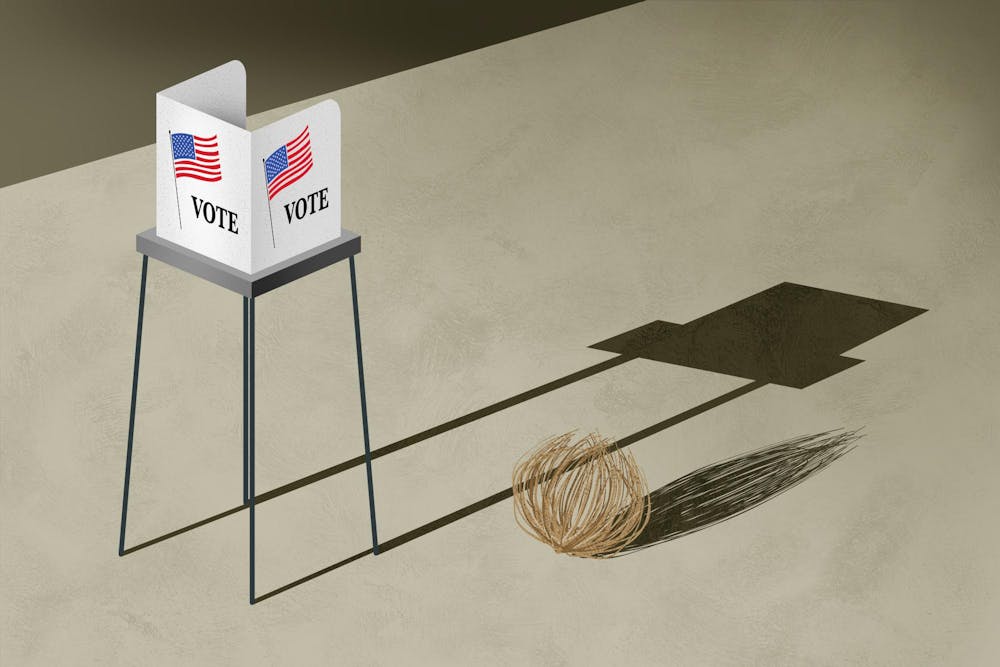Municipal election years in North Carolina see a significantly smaller turnout rate than primary or general elections. In 2019 and 2021, only 16 percent of registered voters participated in November municipal elections, compared to 75 percent in 2020 and 51 percent in 2022.
In Orange County, slightly higher rates of eligible voters cast a ballot during recent elections compared to the statewide average — with 23 percent of eligible voters participating. In 2019 and 2017, about 18 percent voted.
Municipal elections across the state will take place on Nov. 7. These elections will determine mayor, town council and school board seats.
Rick Morse, a professor of public administration and government at UNC, co-authored The Citizens Academy Handbook, which provides local governments with information on how to structure civic education classes that the public can attend to learn about how a town or county operates.
He said, while voting is an influential way to be involved, there are other channels of local government that also need to be emphasized.
“If people are paying attention and understand what's happening in local government, there's a myriad of ways that they can get involved,” he said.
The Town of Chapel Hill offers a citizens academy class, called the Peoples Academy, every February and March. The class teaches participants about Town services and provides the opportunity to connect with Town leadership and discuss community issues.
Morse said in the last decade, local governments have been more proactive in engaging citizens beyond what is required by law. He said he thinks citizens academies create goodwill and knowledgeable residents who can serve as ambassadors to their neighborhoods when issues arise.
“I would argue that in terms of people's day-to-day lives, local government impacts them way more than state or federal or anything else,” Morse said.




